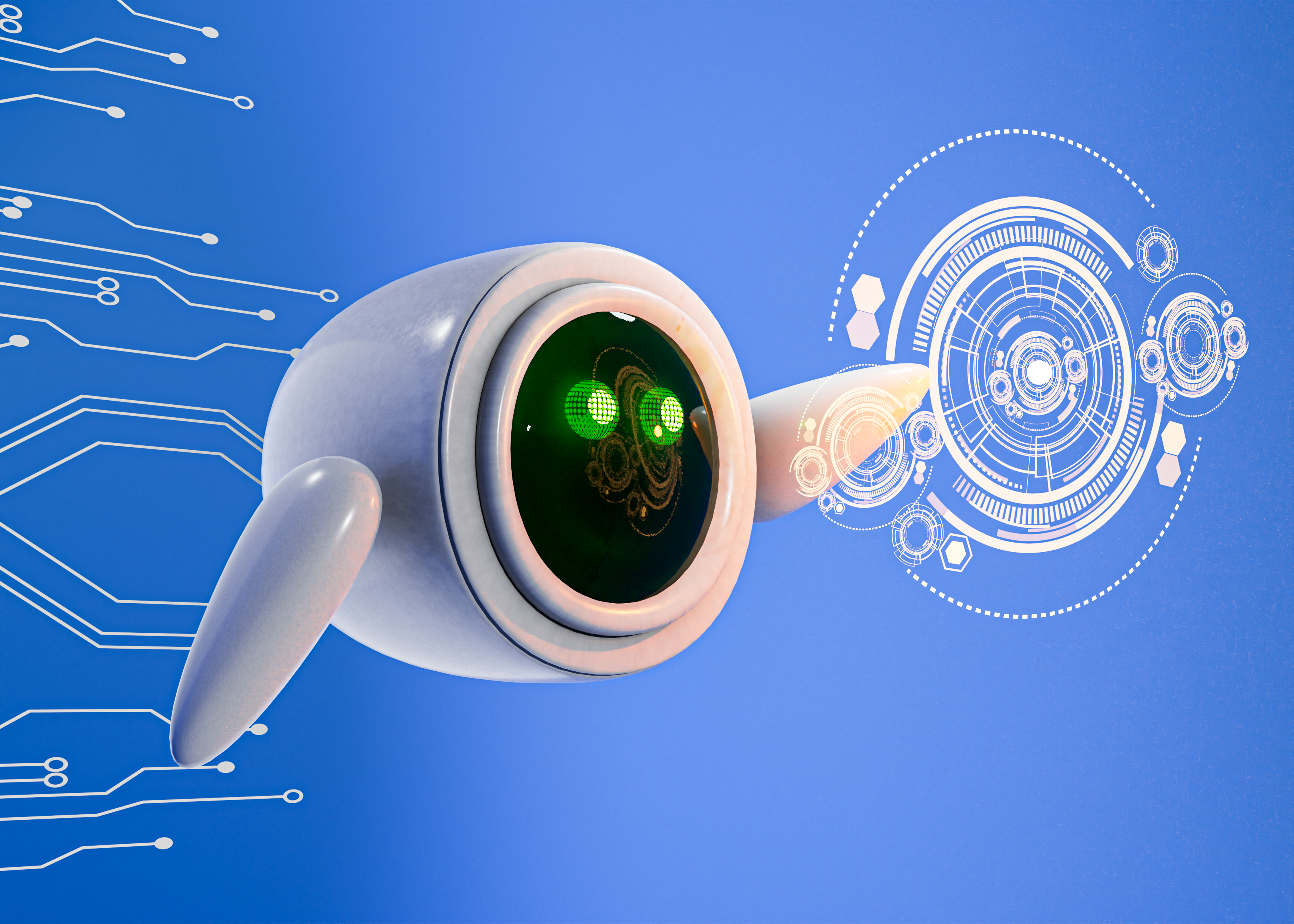AI is revolutionizing industries across the globe, yet the chemical sector remains one of its most cautious adopters. While other fields race ahead, the true potential of AI in chemicals is only beginning to unfold.
The global chemical industry was valued at approximately $6.2 trillion in 2023, standing as a cornerstone of the world economy. Simultaneously, artificial intelligence (AI) is projected to contribute up to $15.7 trillion to the global economy by 2030. The convergence of these two powerful forces is set to revolutionize the chemical sector.
As AI integrates into chemical manufacturing, research, and operations, it promises to enhance efficiency, drive innovation, and promote sustainability. This fusion could lead to unprecedented advancements, reshaping the industry's landscape.
But what are the specific AI applications catalyzing this transformation? How are these technologies delivering tangible benefits to chemical companies? And what does the future hold for an industry at the intersection of chemistry and artificial intelligence?
In this article, we delve into the top AI use cases within the chemical industry, explore the benefits realized by early adopters, and glimpse into a future where AI and chemistry work hand in hand to drive progress.
What AI in the Chemical Industry Really Means
The integration of AI into the chemical industry marks a fundamental shift in how businesses innovate, operate, and compete. More than just a tool for automation, AI is becoming a strategic enabler, allowing companies to harness complex data, predict outcomes with precision, and optimize processes beyond human capability.
At its core, AI in this sector bridges chemistry and computational intelligence, driving advancements in material discovery, process efficiency, and sustainability. Unlike conventional automation, AI-powered systems continuously learn and adapt, offering insights that help businesses reduce costs, enhance product quality, and improve regulatory compliance.
As AI adoption accelerates, its role will extend beyond optimization, it will redefine the industry's approach to research, production, and environmental responsibility.
Top AI Use Cases in the Chemical Industry
AI is pushing the boundaries of what’s possible in the chemical industry. It is actively reshaping how companies operate, innovate, and stay competitive in a rapidly evolving market. But where is it making the biggest impact?
Let’s take a closer look at the top AI use cases transforming the chemical sector.
1. AI-driven chemical research and material discovery
Artificial intelligence (AI) is revolutionizing chemical research and material discovery, enabling rapid advancements that were once unimaginable. Through analyzing vast datasets and predicting molecular behaviors, AI accelerates the development of new materials and chemicals, driving innovation across various sectors.
Here are key contributions of AI in chemical research:
- Accelerated Material Discovery: AI models, such as DeepMind's GNoME, have predicted over 2.2 million new crystal structures, including 380,000 stable materials, potentially advancing technologies like superconductors and batteries.
- Enhanced Molecular Design: AI-driven platforms enable rapid exploration of chemical space, facilitating the design of novel molecules with desired properties, thereby accelerating drug discovery and development processes.
- Optimized Synthesis Routes: Machine learning algorithms assist in predicting efficient synthetic pathways, reducing experimental trial and error, and conserving resources in chemical manufacturing.
Important Note: As AI technologies continue to evolve, their role in chemical research and material discovery is poised to expand, unlocking new possibilities and driving further advancements in the field.
2. Predictive analytics for process optimization
Predictive analytics, powered by AI, is transforming the chemical industry by optimizing production processes, improving efficiency, and reducing costs. Through analyzing historical and real-time data, AI can detect inefficiencies, predict equipment failures, and recommend process adjustments to enhance yield and minimize waste.
Many manufacturers are already leveraging AI-driven predictive models to monitor equipment health, anticipate fluctuations in raw material quality, and refine chemical formulations in real time.
A study published by Arxiv highlights how AI-based quality control systems have significantly reduced defects and improved consistency in chemical production. Similarly, companies implementing predictive maintenance have reported lower downtime and extended equipment lifespan, according to research from STX Next.
3. AI quality control and defect detection
AI is transforming quality control and defect detection in the chemical industry, making inspections faster, more accurate, and highly efficient. Traditional manual inspections often struggle with consistency, but AI-driven visual inspection systems (Elisa IndustrIQ) bridge this gap by analyzing images and data in real time, catching even the smallest defects that might go unnoticed.
That’s not it though. With the ability to detect imperfections at accuracy rates of up to 98%, machine learning algorithms, like IBM Watson AI are significantly reducing errors while improving overall product integrity. This not only ensures higher quality but also optimizes efficiency. Automated inspection systems (ACI Infotech) streamline production by eliminating bottlenecks, allowing manufacturers to increase output without compromising on quality.
Why is it important? Through catching defects early, AI helps companies minimize waste, cut rework costs, and maintain strict quality standards.
4. AI in chemical supply chain management
Supply chain management in the chemical industry isn’t easy.
Prices fluctuate, logistics get complicated, and demand never stays the same. But AI is changing the game, helping companies predict demand, optimize inventory, and keep operations running smoothly, even in unpredictable markets.
Instead of reacting to supply chain disruptions, AI helps businesses stay ahead of them by analyzing vast amounts of data, which allows businesses to get accurate forecasts in market trends, spot potential delays, and recommend smarter sourcing strategies. This means fewer surprises, better cost control, and a more reliable flow of materials.
AI also brings real-time tracking, warehouse automation, and smarter supplier management into the mix, making supply chains faster, leaner, and more responsive.
5. Energy efficiency and sustainability optimization
Energy use and sustainability have become top priorities in the chemical industry, and AI is making it easier than ever to cut waste, reduce emissions, and improve efficiency. Instead of relying on outdated methods, companies are now using AI to analyze energy consumption, optimize production processes, and identify new ways to lower their environmental impact.
With real-time monitoring and predictive analytics, AI helps manufacturers reduce excess energy use, detect inefficiencies, and make smarter decisions about resource allocation. It can even suggest alternative materials, cleaner production techniques, and better waste management strategies to support sustainability goals.
As regulations tighten and businesses aim for greener operations, AI is proving to be a powerful tool in balancing profitability with environmental responsibility, helping companies stay competitive while making a real impact.
6. Predictive maintenance AI for equipment and infrastructure
Unexpected equipment failures can throw everything off balance in the chemical industry, leading to costly downtime, safety risks, and production delays.
But what if you could spot potential issues before they even happen? That’s exactly what predictive maintenance AI is making possible.
AI tracks real-time sensor data and analyzes historical performance trends to detect early warning signs of wear and tear.Instead of waiting for something to break, companies can fix small issues before they turn into major problems, saving both time and money.
Research published by Nanoprecise shows that AI-driven maintenance strategies are already reducing unexpected breakdowns and improving overall plant efficiency.
Beyond just cost savings, AI is also making workplaces safer. Catching mechanical failures before they happen means fewer accidents, less hazardous downtime, and a more reliable production process.
7. AI-powered safety and risk management
Safety is a top priority in the chemical industry, and AI is making it smarter and more proactive than ever. Instead of reacting to accidents, companies are now using AI to predict risks, prevent hazards, and ensure compliance before issues arise.
AI can analyze huge amounts of data to detect patterns and anomalies that signal potential safety threats. This means companies can identify risks early, take preventive action, and create a safer working environment.
One big game-changer is AI-driven Safety Data Sheet (SDS) management, which automates the handling of critical safety documents, reducing errors and saving time. AI is also helping assess chemical toxicity risks, ensuring better protection for workers and the environment (PMC).
With AI improving hazard detection, compliance, and overall workplace safety, chemical companies are creating safer, more efficient operations while reducing risks and unexpected incidents.
8. Regulatory compliance and data management with AI
Regulatory compliance in the chemical industry is complex, time-consuming, and constantly evolving. Keeping up with new laws, safety standards, and documentation requirements can feel overwhelming, but AI is changing that.
AI-powered systems are helping companies:
- Stay up to date with regulations by analyzing legal updates in real time and ensuring compliance with new standards.
- Automate compliance reporting, reducing human error and speeding up approval processes.
- Manage critical documents, such as Safety Data Sheets (SDS) and compliance records, with AI-driven organization and retrieval systems.
- Identify potential risks before they become major issues, ensuring companies stay ahead of regulatory challenges.
With stricter regulations and increasing demands for transparency, AI is becoming a necessity for companies looking to stay compliant, reduce risks, and streamline operations.
Note: Companies that embrace AI will lead the way in efficiency, innovation, and sustainability.
The Benefits of Using AI in the Chemical Industry
From faster research and smarter production to safer workplaces and more sustainable operations, AI is helping companies work more efficiently and stay ahead of the competition.
Here’s how AI is making a real impact:
Speeding Up Research and Development
Discovering new materials and refining chemical formulations used to take years. With AI, companies can predict molecular structures, simulate chemical reactions, and test formulations virtually, cutting research time significantly.
Improving Production Efficiency
AI helps manufacturers reduce waste, optimize raw material use, and fine-tune production processes in real time. The result? Higher output, lower costs, and fewer inefficiencies.
Enhancing Safety and Risk Management
In an industry where safety is everything, AI is predicting hazards, identifying risks, and ensuring compliance before problems arise. This means fewer accidents and a safer work environment for employees.
Optimizing Supply Chains
Managing supply chains is complicated, but AI makes it easier. Companies can forecast demand more accurately, manage inventory better, and avoid costly delays, keeping everything running smoothly.
Driving Sustainability and Energy Efficiency
AI is helping companies reduce emissions, cut energy consumption, and adopt more sustainable practices. With stricter regulations and growing environmental concerns, this isn’t just a benefit, it’s a necessity.
AI is transforming the chemical industry by enabling companies to make smarter decisions, improve efficiency, and drive sustainability. And as the technology continues to advance, its impact will only become more significant.
AI and the Future of the Chemical Industry
It’s simple. You either adapt, or you fall behind.
AI is no longer an emerging trend, it is the driving force behind the future of the chemical industry. Companies that ignore it will not just miss out on an advantage, they will struggle to stay relevant. This is not just about improving efficiency. AI is becoming the foundation for innovation, sustainability, and long-term success. It is the difference between leading the industry and trying to catch up.
The best part? The shift is already happening. AI is not some distant possibility, it is actively transforming how chemicals are discovered, produced, and delivered. The companies that recognize this now will be the ones shaping the industry in the years ahead. They will set the new standards, push the boundaries, and drive the next wave of growth. Those who hesitate will find themselves falling behind, trying to compete in a market that has already moved forward. The future of the chemical industry is unfolding right now, and AI is at the center of it all.
The choice is clear. You can be part of the transformation, or you can struggle to keep up.
Bottom Line
The chemical industry has always been built on discovery, precision, and progress.
AI is simply the next chapter in that evolution. It is not about replacing expertise but enhancing it, pushing the boundaries of what is possible, and unlocking opportunities that once seemed out of reach.
The future will not wait, but for those who are ready to embrace it, AI offers something more than just efficiency or innovation. It offers the chance to redefine the industry itself.
Let’s Get Started!
AI is redefining the chemical industry, and Eminence Technology is here to help you take full advantage of it. From streamlining production to enhancing research and safety, we provide tailored ai app development solutions that drive real results.
If you are ready to integrate AI into your operations, reduce inefficiencies, and stay ahead of the competition, our team is ready to guide you every step of the way. Let’s transform your business with smarter, faster, and more sustainable solutions.
Get in touch with Eminence Technology today and take the next step toward the future.















